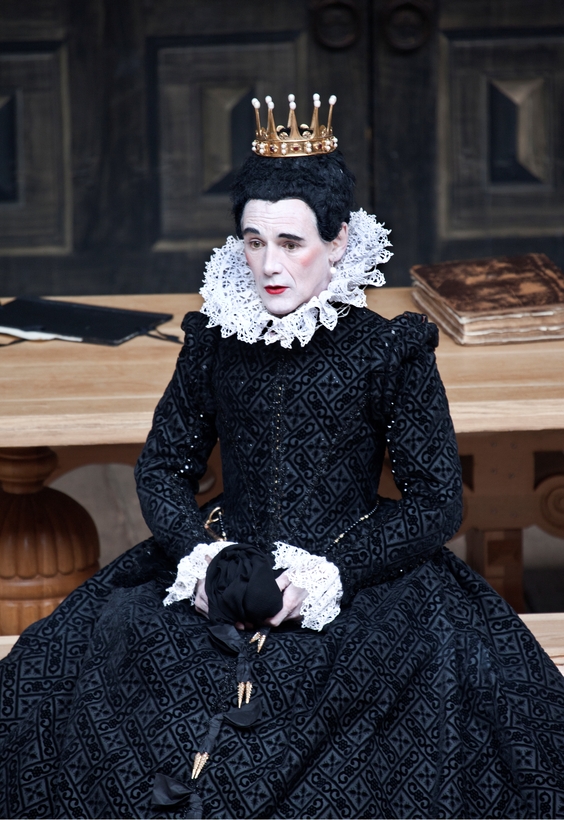The past is a foreign country; they do things differently there. In Shakespeare’s time, all-male acting companies were the only game in London town, with boys scarcely into their teens assigned the women’s roles. So, when contemporary directors stage Shakespeare with an all-male cast, are they being “authentic”? Not really, when the women’s parts go to grown men, as they usually do. A decade ago, when Tim Carroll mounted his celebrated all-male Twelfth Night at Shakespeare’s Globe, I came across a British actress who was staying away on principle. “Don’t the men get enough of the great roles?” she asked. “And then they steal ours?” This, as she was spearheading an all-female Henry IV.
A foolish inconsistency! What is acting, after all, if not an art of self-transformation? What is theater but a place of make-believe? Cross-dressing has been in the mix from Day One. As Olivia, a countess in mourning fending off the overtures of a duke, Mark Rylance draws on many models. The chalk make-up, coral lips, and pencil eyebrows conjure up Elizabethan miniatures. The timbre of the voice and fluttery inflections catch echoes of Judi Dench. The physical displacement from Point A to Point B—Kabuki-style, as if on casters—derives from Japan’s Living National Treasure Tamasaburo Bando, nonpareil in women’s parts. From such sources and more, Rylance paints a character all his own, a prize-winning portrait for the ages.

That said, this Twelfth Night is no one-man show. As the shipwrecked Viola, masquerading as the youth Cesario (more chalk makeup, coral lipstick, and pencil eyebrows), Johnny Flynn might pass for the Fair Youth of Shakespeare’s Sonnets, and so might Samuel Barnett as Viola’s identically dressed twin brother Sebastian, wrongly presumed dead. Stephen Fry is Olivia’s steward Malvolio, a social-climbing killjoy whose humiliating comeuppance more often than not is played for guffaws, but Fry digs deeper.
A word on the title, which recalls the Feast of the Epiphany on January 6, the twelfth day of Christmas. That’s around the time this most festive of Shakespeare’s comedies was first performed. Theological intent, if any, is buried (to borrow a phrase from The Tempest) deeper than did ever plummet sound. Yet for four centuries and counting, cognoscenti have found the play’s generosity and high jinks uniquely simpatico with the Yuletide spirit. Paneled in lustrous walnut and dressed up in russet and hunter green, this production’s nobly proportioned Tudor setting evokes the holly and the ivy, as does the music of a mellow yet tangy period band.
Twelfth Night is available for streaming on the Globe Player Web site
Matthew Gurewitsch writes about opera and classical music for AIR MAIL. He lives in Hawaii

